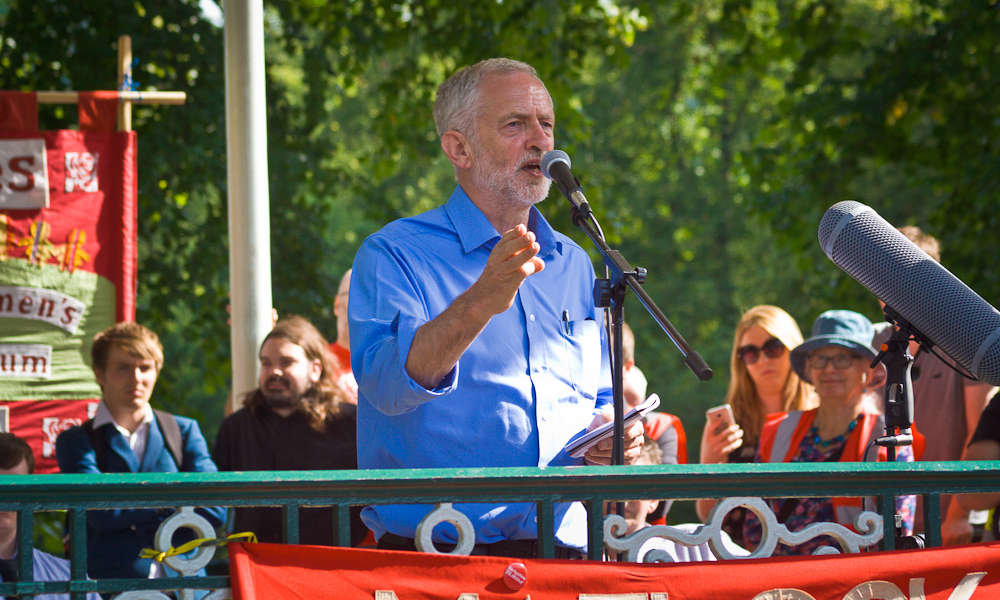On a campaign footing
The general election of June 2017 marked a turning point in British politics and saw one of the most dramatic results in electoral history. The Labour party defied all expectations increasing our share of the vote on the previous election...
The general election of June 2017 marked a turning point in British politics and saw one of the most dramatic results in electoral history. The Labour party defied all expectations increasing our share of the vote on the previous election by the biggest percentage since the 1945 landslide under Clement Attlee.
Only a month earlier the Conservative party had been riding high in the opinion polls, with leads of 20 points not uncommon and we saw this translate into scores of new council seats across the country. June’s election, according to almost all political pundits, was going to be extremely tough for Labour. Indeed, many expected seats with Labour majorities of up to 10,000 to go blue.
The turnaround was unprecedented and only a Scottish revival for the Tories saw them turn a potentially cataclysmic evening into a disastrous one. In England, Labour lost six seats to the Conservatives but gained a further twenty eight from them, also taking two seats from the Lib Dems. In Scotland, Labour gained six seats from the SNP, which only two years ago would have been an almost impossible thought. Perhaps most importantly, with Tory majorities slashed right across the country, Labour now has a path to victory whenever the next election is called.
There are many theories as to why the general election panned out the way it did, many of which have merit. There is no doubt, however, that following two years of squabbling over its future direction, the party unified behind a radical and realistic manifesto, and the election result was shaped by the ever-growing popularity of Jeremy Corbyn among a widening constituency of people.
The election result shattered a long established order in politics and showed that millions of people in Britain will not only vote for a vision of hope for the future but are inspired by politics as a route to changing their lives in a way not seen for a generation.
The message of hope embodied by the leadership of Jeremy Corbyn has inspired people not only to get out and vote for, but to join the Labour party.
Our membership grows on a daily basis, now making us the biggest left of centre political party in Europe and a model for those on the continent to follow. Whilst dwarfing the membership of Conservative party is both a psychological and financial boost, we now have the opportunity to harness the talents and passion of our members in a coordinated way that will mean the party’s recent success is only the beginning. We must harness the energy, aims and aspirations of our communities, the trade union movement and most importantly our members. Investing in the training of community activists and candidates up and down the country will bring untold rewards politically for Labour.
In order to project our values into the daily lives of every village, town and city across our country we need to unlock the talents of our burgeoning membership, creating a movement for a fairer society. Doing so will give Labour the platform to build and strengthen links across communities both in areas the party has traditionally had strength, but – importantly – also in those where we have not.
Putting the party on a permanent campaign footing is a welcome first step in ensuring we continue to engage members in getting out a Labour message of fairness and equality.
Community organising has long been recognised as a hugely important facet of Labour’s future as a major electoral force. We must aim to have a community organiser in every constituency, tasked with developing and strengthening links between local parties, their members, trade unions and their communities. This is a hugely ambitious feat but one that will be key to the future development of our membership in becoming a movement that can positively affect change in their communities.
Labour will always be primarily a political party which aims to achieve change through electing candidates at all levels. But on occasion the necessity of electoral campaigning has seen us in competition with our own community organising activities. The needs of our local communities always need to take precedent and both strains of campaigning need to be mutually beneficial to end the issue of short-term gains being wiped out in the next electoral cycle.
There should be no conflict between these two strands of campaigning but to make a success of it will require careful coordination and nurturing. The job of community organisers will be to tie together these strands of campaigning and to further empower members to drive positive change in their communities.
Labour’s membership has always been our greatest asset. Following the exponential growth our membership over the past few years we need to ensure that our training and development of campaigners and candidates can keep pace, reaching as many members as possible. Delivering an army of community organisers could be a game changer, delivering Labour the mandate to shape Britain’s future.

